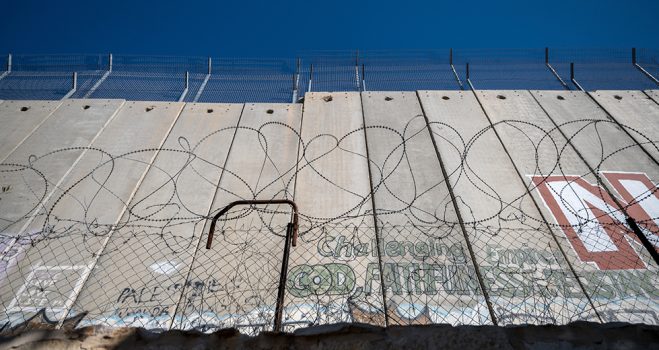Pursue peace with everyone, and the holiness without which no one will see the Lord. —Hebrews 12:14
The World Communion of Reformed Churches (WCRC) expresses its deep concern over the recent hostilities between Israel and Palestine that have left many killed and even more injured on both sides of the conflict.
We call our member churches to stand in solidarity with all those who are suffering the ravages of war and call on the international community to work for justice in the region so that there can be a real and long-lasting possibility for peace.
We acknowledge that the present situation in the Holy Land is embedded in a historic context that has at its roots a complex history of imperialism, colonialism, antisemitism, and Islamophobia.
We understand that the heart of the conflict is political and not religious, and that the international community is implicated in what is presently happening. The international community needs to act to resolve the conflict, and both Israel and Palestine need to keep to international and United Nations agreements. A cessation of war is a first step towards bringing peace to the region.
We call for an end to militarization and the supply of arms to all parties in this conflict.
We call for an immediate release of all hostages and political prisoners, especially children.
We call for a dismantling of walls—both literal and metaphorical—the restoration of the right to the freedom of movement, and the right of access to Gaza, particularly the access of humanitarian aid to all affected areas.
While we recognize the political roots of the crisis, at the same time we cannot diminish the involvement of faith communities, both locally and globally. The Holy Land is sacred for three of the world’s religions. These three not only share a common geography but also common narratives and a commonality in Scripture. In the light of this commonality, we urge faith communities around the world to lift up our common humanity over all else that differentiates us and work together for justice and peace.
We recognize that we as Christians with our theological understandings and prejudices, both historic and present, have offered legitimacy to oppression and discrimination in the region. We call our member churches to rethink those theologies that uphold discrimination and violence and instead to pursue justice and uphold human rights.
We particularly call on our members and the ecumenical community to listen to the voices of Palestinian Christians as they discern and advocate for justice and peace in the region.
Image: A section of the wall that separates Bethlehem from Jerusalem (Albin Hillert/Life on Earth).


